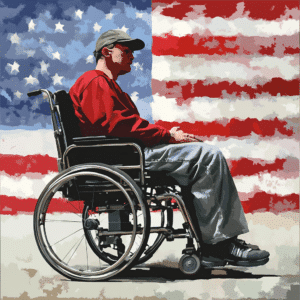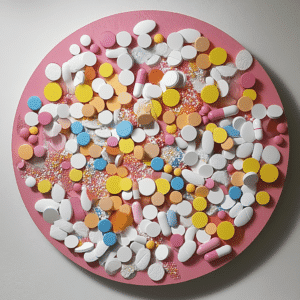Addiction affects not just the individual but the entire ecosystem surrounding them. The impact of addiction on families is profound, disrupting trust, causing emotional stress, and altering communication patterns. At Mothers Against Addiction, we recognize the importance of support and guidance for the families of those grappling with addiction or dealing with loss. Let’s explore the wide-ranging effects together.
The Ripple Effect: How Addiction Affects Each Family Member
Addiction isn’t a solitary battle—it spills over, impacting everyone connected to the addicted person, especially family members. This isn’t just a figure of speech; it’s a reality. The psychological and social disturbances within a family when one member is addicted are palpable and far-reaching. For instance, trust issues emerge, emotional stress mounts, and communication patterns become increasingly unhealthy.
The impact of addiction on families extends to children, who face emotional distress, financial strain, and educational challenges. Living with an addicted parent, grandparent, or older sibling can significantly increase a child’s risk of developing their own substance use disorders.
A Fractured Trust: Emotional Coral
Trust is often the first casualty when addiction infiltrates a family. Broken promises and dishonest behaviors become the norm, creating an atmosphere of constant anxiety and uncertainty. This results in what we call emotional coral—unresolved conflicts and mistrust that grow and fester over time. Parents are left wondering if today will be better or worse than yesterday, continuously walking on eggshells.
For example, many families witness sufferers presenting one face to the world, yet showing another at home. They feel like they’ve been let down so many times that skepticism becomes their default mode. This cycle of disappointment only deepens the emotional chasm between family members.
| **Impact of Addiction on Families** | **Details** |
|---|---|
| Emotional Stress | Addiction in a family member often leads to significant emotional distress for all family members. This includes feelings of anxiety, depression, guilt, and shame. Children, in particular, may feel responsible for the addiction or neglected by the addicted family member. |
| Trust Issues | Substance abuse creates trust issues within the family. Family members may become skeptical due to repeated lies or broken promises related to the addiction. Trust is broken as family members find it increasingly difficult to believe the addicted person’s words or promises. |
| Unhealthy Communication Patterns | Communication within the family often becomes dysfunctional. Family members may avoid discussing the addiction or may have frequent conflicts and misunderstandings. Lack of honest communication can further isolate family members and exacerbate the problem. |
| Impact on Children | Children living with an addicted parent, grandparent, or older sibling face emotional distress, financial problems, educational challenges, and a greater risk of developing their own substance use disorders. Children’s mental health disorders like depression and anxiety are more common. |
| Financial Strain | Families dealing with addiction often face financial difficulties due to the cost of substances, treatment, legal fees, and loss of income. Financial strain can exacerbate stress and lead to further family conflicts. |
| Increased Risk of Domestic Abuse | Addiction in the family increases the likelihood of domestic abuse. This can manifest as physical, emotional, or verbal abuse among family members, creating a hostile and unsafe environment, especially for children. |
| Mental Health Disorders in Family Members | Exposure to addiction increases the risk of mental health disorders among all family members, not just the addicted individual. Mental health issues such as anxiety, depression, and PTSD are common, particularly in children raised by parents with addiction problems. |
| Prevalence | Approximately 1 in 10 children (7.5 million) live in households with at least one parent who had an alcohol use disorder in the past year. About 1 in 35 children (2.1 million) lived with at least one parent who had an illicit drug use disorder in the past year. |
| Benefits of Comprehensive Family Treatment | Comprehensive family treatment programs can help heal damaged relationships, rebuild trust, and develop healthy communication patterns. These programs can provide emotional support, education, and coping strategies for family members and significantly improve family dynamics. |
Navigating Parenting Challenges with Addiction in the Picture
Parents of children struggling with addiction encounter unique and harrowing challenges. The blend of fear, anxiety, and the pressures of maintaining a stable household takes a tremendous toll. According to a study by the Betty Ford Institute, parents experience heightened anxiety, depression, and feelings of helplessness. The emotional burden varies but often includes sleepless nights, constant worry about their child’s safety, and the strain of managing other familial responsibilities.
Indeed, these challenges necessitate dedicated support systems. Counseling and family therapy For addiction provide much-needed relief and guidance, helping parents cope with their unique situations.
The Financial Toll: A Crisis Hidden in Receipts
Addiction envelops families in financial turmoil. The costs can be staggering—covering rehabilitation programs, legal fees, and even theft within the home. A 2023 report by the National Institute on Drug Abuse indicated that families spend an average of over $50,000 annually dealing with addiction-related issues. This economic strain adds another layer to the already overwhelming emotional stress.
Let’s not forget that financial instability can exacerbate other issues within the family, leading to arguments, distrust, and even further escalation of the addicted individual’s behaviors. A family might find themselves questioning if they should prioritize their mortgage rate 30 year fixed or spend money on another round of treatment.
Real-Life Impact: The Smith Family’s Journey
Consider the Smiths from Houston, Texas. Their son John struggled with opioid addiction for five years. Despite multiple treatment attempts, his relapses created financial debt, loss of property, and relentless emotional strain. Their story is a mirror to thousands of families, showing the complicated layers of stress they endure.
This narrative underscores the immense benefit of community and professional support. Engaging in programs that support families, such as those offered by Mothers Against Addiction, can provide the much-needed lifeline during these turbulent times.
Sibling Dynamics: Strained Bonds and Silenced Voices
Siblings of addicted individuals often live in the shadows, grappling with a swirl of emotions—guilt, jealousy, fear, and rage. They might feel neglected as the family’s focus shifts to the child with addiction. These siblings are frequently the forgotten victims, carrying their own scars.
A study by Stanford University’s Department of Psychology reveals siblings are 25% more likely to develop anxiety disorders if a brother or sister is addicted. Their voices are often silenced under the weight of the family’s primary focus on the addicted individual, leading to bottled-up emotions and unspoken pain.
Marital Stress: Partners in Pain
Spousal relationships suffer profoundly when addiction is in play. Divorce rates are higher among couples dealing with addiction, mainly due to the unbearable stress and emotional exhaustion that comes with it. Research from the University of Michigan shows that spouses of addicted individuals face increased depression, PTSD, and emotional burnout.
Moreover, the stress associated with dealing with financial woes—from managing debts to understanding something as technical as the depreciation recapture tax rate—can further strain a marriage, compounding emotional and financial troubles and sometimes making it impossible to keep the relationship intact.
Coping Strategies: Pathways to Resilience
While addiction’s impact is undeniably devastating, families can develop resilience through structured support and proactive strategies. Key steps include:
Building resilience is a collective effort requiring patience, support, and ongoing commitment. Family unity can act as a bulwark against the overwhelming tides of addiction.
Innovative Insights for Families in Crisis
The journey through addiction’s chaos doesn’t need to be solitary. Emerging treatments and support systems offer new avenues for recovery. For instance, holistic approaches and community-based support provide comprehensive healing avenues. Programs like Johns Hopkins Medicine’s Family Navigator offer personalized guidance to manage crises, rebuild trust, and stabilize emotions.
Additionally, understanding that addiction is one in The same with chronic diseases helps shift perspectives toward long-term management rather than a quick fix. This mindset can foster a more compassionate and effective approach to dealing with family addiction.
Crafting a Future: Steps to Healing
Understanding the profound impact of addiction on families is critical for moving forward. Addressing the suffering of the addicted individual is essential, but so is recognizing the collective trauma of the family. Through professional and personal concerted efforts, families can move from grief to growth and despair to hope.
At www.MothersAgainstAddiction.org, we emphasize that re-establishing equilibrium and fortifying family bonds can be a slow process, but persistent dedication allows healing to take root. Transforming the family’s future is not just a possibility; with the right support, it’s an achievable reality.
This comprehensive approach ensures that the family unit can emerge stronger, more resilient, and ready to face whatever lies ahead.
Impact of Addiction on Families
Addiction doesn’t just affect the individual; it ripples through families, causing emotional stress that can be devastating. Understanding the impact of addiction on families is crucial for grasping the broader consequences and fostering empathy for those involved.
Emotional Turmoil
Families with Children Of Addicts experience an emotional rollercoaster. Oh, the stress and worry—they’re ever-present companions.Did you know, according to research on Children of addicts, these kids can struggle with anxiety and depression? It’s like being a Browns quarterback with fumble after fumble, trying to hold it all together but feeling the weight of the game on your shoulders read more about the Browns quarterback. It becomes a never-ending cycle of trying to protect and fix, making it hard to find peace.
Strained Relationships
The impact of addiction on families often seeps into relationships. Spouses might feel neglected, siblings overlooked, and trust can become a rare commodity. Interestingly, a discussion about addiction’s toll on familial bonds can draw as much passion as a match between the Scotland Vs Norway national football Teams. Both scenarios involve intense emotions and high stakes; one is played on a field, the other in homes across the world. Families find themselves balancing love and frustration, often without winning.
Financial Strain
On top of emotional strains, there’s the financial burden. Addiction can drain resources through treatment costs and missed work. Such strains are well-documented on the Family impact Of addiction—showing( that money troubles add another layer of stress. It turns everyday scenarios, like paying bills or planning for the future, into monumental tasks, compounding the emotional toll.
Understanding these facets is key to grasping the full impact of addiction on families. It’s not just an individual’s battle; it’s a family’s struggle, a team effort, and often, a community endeavor.
How does addiction affect the family system?
Addiction creates trust issues, emotional stress, and unhealthy communication patterns within the family. Rebuilding these relationships often requires comprehensive treatment for the entire family.
What is one outcome of addiction and families?
Children in families coping with addiction experience emotional distress, financial strain, educational challenges, and an increased risk of developing their own substance use disorders.
What characteristics often found in families affected by addiction?
Mental health disorders like depression and anxiety are common among family members exposed to addiction, leading to an increased risk of domestic abuse and financial difficulties.
How many family members are affected by addiction?
Millions of children live in households where a parent has a substance use disorder, impacting their emotional and physical well-being and increasing their risk of developing addictions.
What are the risk factors for addiction in a family?
A family history of addiction, mental health issues, and environmental stressors are significant risk factors that can lead to developing addiction within a family.
How does addiction affect parenting?
Addiction in parents can result in neglect, inconsistent discipline, and an overall lack of emotional support, severely impacting the parent-child relationship.
What is the most alarming effect of drug addiction to the family?
The most alarming effect of drug addiction on the family is the profound emotional and psychological damage, which can lead to long-term mental health issues.
What are three codependent behaviors in families with addiction?
Common codependent behaviors include enabling the addicted person, neglecting personal needs, and maintaining a harmful dependency on the addict’s wellbeing.
What are the family rules of addiction?
Typical family rules in addiction include maintaining secrecy about the addiction, avoiding confrontation about the issue, and denying the problem’s severity.
What are 3 personality traits that are closely related to addiction?
Personality traits closely related to addiction often include impulsivity, a high need for sensation-seeking, and difficulties with emotional regulation.
What is the family model of addiction?
The family model of addiction views the behavior as part of a larger system of interactions and relationships, where each member plays a role in maintaining the addiction dynamics.
What are the risk factors families for addiction recovery?
Several risk factors for addiction recovery within families include lack of social support, exposure to environments that promote substance use, and unresolved personal or familial trauma.
How does addiction affect family relationships?
Addiction often results in broken relationships, diminished trust, relentless conflict, and strained communication, which collectively erode the family’s foundation.
What are the consequences of drug abuse on families?
Drug abuse can lead to financial hardship, emotional turmoil, social isolation, and can often perpetuate a cycle of abuse within families.
Is addiction hereditary or genetic?
Addiction can be influenced by genetic factors, meaning it can be hereditary. However, environmental and situational factors also play a significant role.
What is the family systems model of addiction?
The family systems model of addiction emphasizes that the family unit, as a whole, influences and is influenced by each member’s behaviors, where addiction is seen as part of a larger dysfunctional system.
What are the factors affecting drug abuse in the family?
Factors such as stress, poor communication, and a lack of support systems can affect how drug abuse manifests and its impact within a family unit.
How does opioid addiction affect families?
Opioid addiction can devastate families by causing financial ruin, emotional distress, and increasing the risk of overdose or death among family members.
How does alcoholism affect the family?
Alcoholism disrupts family dynamics by fostering an environment of unpredictability, neglect, and emotional abuse, which can have lasting effects on every family member.




























